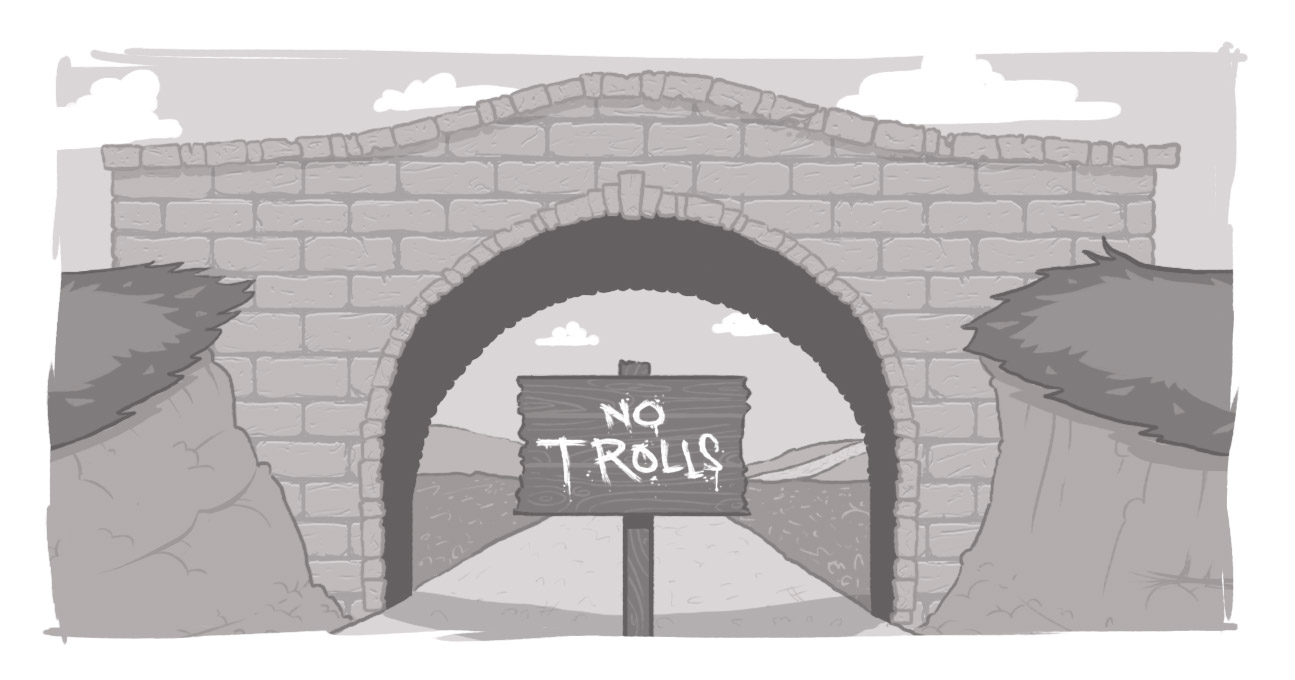Don't Let Coke's Experience Hijack Your Campaign Efforts

Your first reaction upon revisiting the fallout from Coca-Cola's #MakeItHappy campaign may be to throw up your hands and say, "Well, this is why we can't have nice things, Internet." But that'd be the wrong thing to do.
The worst-case scenarios are always going to be there, but it's up to you whether you allow fear of the potential to stop you from running a campaign. And, for most businesses more often than not, the reward far outweighs the risk.
If you're not familiar with this story, here's a quick synopsis. Coke ran a Super Bowl commercial that introduced a Twitter campaign designed encourage people to respond to online negativity with the hashtag #makeithappy. Essentially, users would reply with the hashtag and Coke's automated algorithm would reposition it in a positive way.
Until Gawker got a hold of it.
They created a bot that essentially spewed forth tweets quoting Mein Kampf, Adolf Hitler's autobiographical manifesto.
Hilarious, right?
More like puerile, insensitive, insulting, and mean-spirited. But, hey, that's the Internet.
The always-awesome Ragan Communications posted an article that concluded with the idea that any campaign of this type should be scrutinized with the "what's the worst that can happen?" mentality.
Which I agree with.
And then the insinuation would have been by realizing the depths of Internet's depravity and immaturity, Coke could have stopped the campaign before it started, avoiding the Hitler references, and everyone would be happy.
Which I vehemently disagree with.
Sadly, there are people out there who get their kicks by trying to destroy. Yes, Coke's campaign was simple marketing. Yes, the ultimate goal is to attach the brand to a positive message designed to make people feel good about its products. And, yes, a hashtag campaign is just another form of slacktivism, allowing people to feel like they're making a difference, but really not contributing any real change.
But it was pretty harmless. And, other than sick self-gratification, there's really no good reason for someone to sabotage it.
So what does this mean for you if you're considering a viral campaign or looking to attach a hashtag to your Tweets? Really, it's about assessing the risk/reward.
What's your size?
We're not all Coke. Larger multi-nationals tend to be targets for those who see big business as the Great Satan. I'm sure if Monsanto started a campaign using #LoveandPeace it would be hijacked before it was even able to click "Tweet"
If you're a mom-and-pop, a small business, or even a medium-sized operation, chances are you haven't built up that level of organizational enmity wherein anything you post or attempt is going to be an instant target. You may have to deal with the odd person out there who uses the anonymity of the Internet as a form of a digital courage, but otherwise you should be fine.
Even larger companies, for the most part, are going to be safe. Consider this: for all the hashtags and digital efforts out there, how many have been hijacked like this? The numbers are in your favour.
Why are you doing it?
Authenticity helps. While there are true bottom-feeders out there who love nothing more than to stir things up, a lot of the negativity comes from well-meaning people who are reacting to a perceived insincerity in your efforts.
If it comes across as pure marketing or a cash grab, then the reaction is going to be different than if the venture is based on something you hold true to yourself, or your corporate culture.
Are you legitimately engaging your customer base with issues and content that's of interest, or are you insinuating yourself into a conversation or topic in which you really have no place? How those questions are answered often can predict what your audience's response is going to be.
How are you saying it?
How you express your sentiment often directly translates to how it's received. If your organization constantly shouts "look at me, look at me" every time you do something, then it's natural for your audience to feel that your efforts are not about a cause or the audience, but rather purely in your own self-interest.
Coke's challenge is that everything it does is promotional. That's just what it is. The power to do good is overwhelmed by the commercialization aspect. Chances are you don't have that history -- and that type of goodwill can help, as long as you don't abuse it.
Add it all up, what's the risk/reward?
So you have this great idea that you think is going to get viral traction. It comes from the heart, it benefits your clients, and you've created a hashtag that you feel is pretty safe from abuse/mockery (think Homer Simpson testing out the potential name of Bart, "Bart, Card, Dart, Eart... nope, can't see any problem with that!"), you're good to go.
And cross your fingers. And monitor, monitor, monitor.
It's never going to be a fool-proof plan because there are a lot of fools on the Internet. But how other people, who really don't matter to your business, react should not prevent you from creating the content you feel will propel your business.
There will be bumps on the road and we've discussed how to deal with some of them in the past: laying down the law and developing response strategies are two ways. Also not dismissing so-called trolls outright and listening to their issues can help. But you shouldn't be afraid to try.
But that's for you to decide. You need to measure the potential risks and rewards for yourself. Chances are, you'll find you're overestimating the risk and missing out on some great rewards.
Your thoughts? Comments, as always, are open.
Should I try a viral campaign?
How can I avoid having my viral campaign hijacked?
What went wrong with Coke's #MakeItHappy campaign?
SUBSCRIBE TO OUR E-NEWSLETTER
 Subscribe
Subscribe


